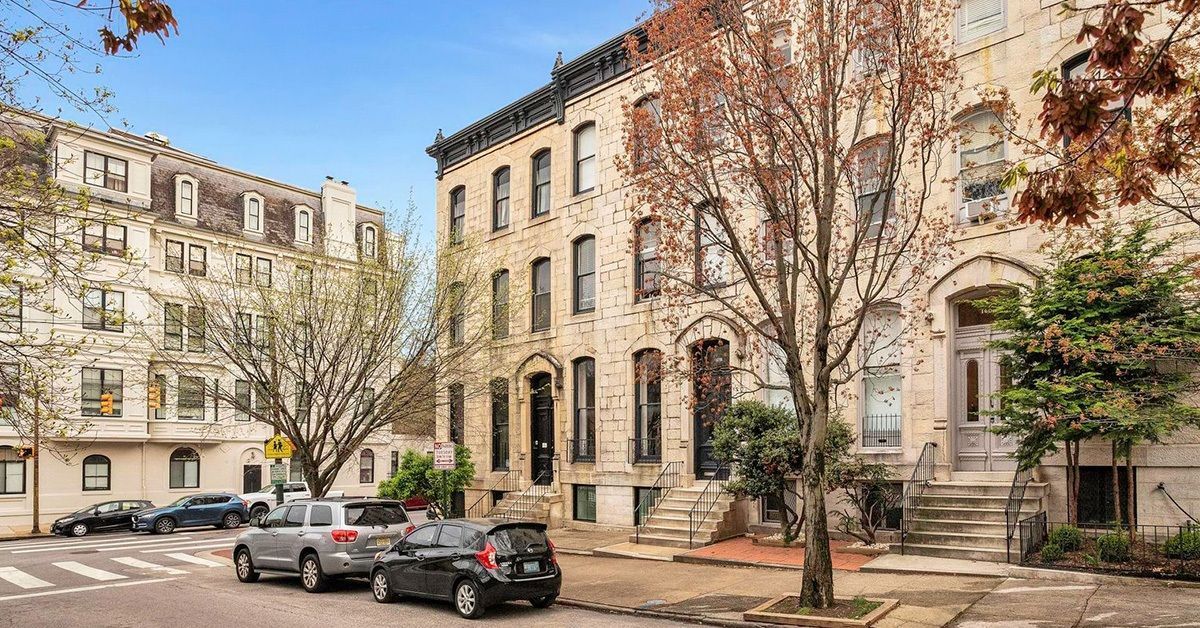How to Become a Landlord & Rent Property in PA

How to Become a Landlord in Pennsylvania
Many property owners consider leasing their property as an income source, and it's a logical thought process. In the U.S., renters occupy around 44 million households, with the number of renters rising steadily since 2010.
While this high demand likely has you questioning how to rent out property in PA, it's important to make understanding Pennsylvania's landlord requirements your first step. This article will take you through the process in detail and set you up for success.
How to Become a Landlord in Pennsylvania: The Checklist
- Have or acquire property in a well-positioned location with desirable amenities.
- Understand and budget for property ownership costs.
- Familiarize yourself with PA landlord-tenant law.
- Set a fair rental price.
- Advertise the property using inclusive, nondiscriminatory language.
- Screen potential tenants.
- Write and sign a lease.
- Do a walk-through with the new tenant.
- Maintain the property and check in with tenants regularly.
What Do You Need to Become a Landlord?
To become a landlord in Pennsylvania, you first need a desirable property to rent out (either residential or commercial) and a firm understanding of your responsibilities to your tenants.
Becoming a successful landlord demands:
- Understanding property ownership and rental costs
- Knowing PA landlord-tenant law
- Resilience and the ability to act quickly when adversity strikes
Rental income is sometimes called "passive income," but experienced landlords know there isn't much passive about it. Becoming a landlord requires research and effort. Here's what you can do, step-by-step, to get your first property rented:
1. Have a Property to Rent
Owning a property is step one to becoming a landlord. Whether you own one already or purchase one for the purpose, the rental timeline will be similar.
However, when you own property already, becoming a landlord may be easier than starting entirely from scratch and buying a property to rent. Getting a mortgage for a home, apartment building or commercial property you want to rent out is more complex than buying for your own use.
Typically, you need a higher credit score and a bigger down payment to get a mortgage for a rental property. Lenders take on more risk when lending money to investors since there is less emotional attachment to the property.
2. Know Landlord-Tenant Law for Residential Properties
Pennsylvania Landlord-Tenant Law is unique to the state and protects landlords and tenants. Pennsylvania's landlord requirements for residential properties govern aspects like:
- The size of the security deposit
- What to do with the security deposit while a tenant lives in your property
- How to collect rent
- Which late fees you can charge
- If you need a written lease
In addition to these state-specific laws, you must understand federal laws — particularly for residential properties.
The Fair Housing Act prevents you from refusing to rent to people based on race, sex, family status, color, disability, religion or national origin. The Fair Credit Reporting Act dictates the information you can collect when screening potential tenants.
Understanding this collection of legally protected tenant rights in Pennsylvania can help you ensure you fulfil your duties as a landlord and build a positive landlord-tenant relationship.
Although commercial tenants also usually pay a security deposit, they have little in common with residential tenants as far as the law is concerned. There are fewer legal protections in place for commercial tenants, but you might find yourself negotiating with a team of lawyers to create a lease that works for you as the landlord and the business that will be your tenant.
3. Set a Price and Know Your Budget
Fair pricing is crucial to successful rental. Underpriced properties earn too little, while overpriced rentals can dissuade tenants from considering the space. Determining the best price for your property rental involves researching what similar properties are going for in the area and setting your price based on that. If your property has more amenities, such as a fitness center, pool or free parking, raise the rent accordingly. If your property has fewer amenities, lower your price to compensate.
It can be tempting to set a rental property based on your mortgage payment. However, as a landlord, you'll have additional costs apart from mortgage repayments. If something on the property breaks or degrades and needs to be replaced or repaired, you'll have to pay for those repairs or replacements out of pocket. Use the mortgage and market as a guide, then consider ongoing maintenance costs and expected expenses.
4. Advertise the Property
Strategic property marketing is your next step, and you have many potential options:
- Create an effective property listing on a multiple listing service
- Share rental details on social media
- Ask friends and family to share your listing with anyone seeking a rental
- Advertise on apartment listings at universities and community notice boards
In the case of commercial properties, write up a press release about available rentals, especially if the building is new or has recently been renovated. You can also advertise commercial properties on listing services designed for commercial real estate to reach your target audience of business owners.
5. Tenant Screening
Once you have applicants, you need to screen potential renters while adhering to equal housing laws. Here's what to do when screening potential residential tenants:
- Credit checks: Check their credit — remember that you require their permission to run a credit check
- Income verification: Verify their employment or source of income
- References: Call past landlords and ask about their rental history
- Background checks: Check their background and criminal history
Screening commercial tenants is slightly different. For established businesses, you can run a credit check on the business itself. Alternatively, run a credit check on the business owners. Try to research the company's financial history and contact past landlords.
This process can be complex, and it's often better to contract it to an established property management company.
6. Write and Sign a Lease
Once you find a tenant who meets your requirements, create a written lease for the landlord and tenant to sign. A written agreement:
- Protects the tenant
- Protects the landlord
- Details agreed-upon stipulations
- Tells the tenant what's expected of them.
Ensure your lease agreement is clear, comprehensive and easy to understand. Pennsylvania's lease agreement requirements can be complex, so if you've never written a lease before, it's a good idea to get some help with lease preparation.
7. Inspect the Property
After signing the lease, but before the tenant takes occupation, schedule a walk-through with them. Walk through the property together and make a note of any issues or concerns, such as:
- Stains on the carpeting
- Nonfunctioning appliances
- Cracked walls and ceilings
Consider taking photos of the damage for your records. After the property inspection, notify the tenant if you are going to remedy any of these concerns, and arrange the repairs.
A pre-occupation inspection helps you discover and correct any concerns before the tenant moves in. When the tenant leaves, this record can also help you determine if any damage was preexisting or if it happened while a tenant was living in the building.
8. Check-In With the Tenant
Regular tenant check-ins help you detect and quickly fix any problems that come up during their lease.
Many tenants will promptly notify you about maintenance requests that affect their day-to-day, such as a broken heater or a refrigerator that doesn't keep food cold.
Tenants often forget to mention less impactful issues like a hole in the wall or a window that doesn't open smoothly. To ensure your property is in the best shape possible and you remain able to fix problems quickly, schedule regular check-ins with your tenants. Your check-ins can be quick phone calls or email exchanges during which you ask if there are any problems, even small ones.
Although commercial tenants are often responsible for repair, maintenance and upkeep, it's still a good idea to touch base with them from time to time. You want to verify that they are addressing any issues as they arise.
What Do I Need to Become a Landlord in Pennsylvania?
Renting out property in Pennsylvania requires adherence to comprehensive rules, particularly for residential properties. Pennsylvania's Landlord-Tenant Act of 1951 outlines the rules and requirements of collecting security deposits and other payments, while the Pennsylvania Human Relations Act prohibits discrimination. Here's what you need to know before you become a Pennsylvania-based residential landlord:
- Security deposit collection: Pennsylvania doesn't require you to collect a security deposit from tenants. However, you can collect two months' rent as a security deposit in the first year and one month's rent in the second year and beyond. Store the deposit in a secure account. If the tenant rents for over two years, they should receive any interest the deposit accrues, starting in the 25th month of their tenancy.
- Returning security deposit: If a tenant moves out, you must return their security deposit unless they broke the lease, have unpaid rent or caused damage beyond standard wear-and-tear. If you keep all or part of a tenant's deposit, notify them within 30 days of move-out — the notification should include an itemized list of expenses.
- Rent collection rules: Pennsylvania doesn't have rent control or limitations, so the rent value is at your discretion. You may also charge tenants a late fee if they do not pay on time.
- Warranty of habitability: As a landlord, it's your responsibility to make sure that the property you rent to people is "safe, sanitary and fit for human habitation." A landlord can't rent a property to tenants "as-is" and expect them to take responsibility for heat and sanitation concerns. Before you rent to tenants, make sure you understand what's expected of you under Pennsylvania law and what a tenant can do if your property is uninhabitable.
- Pennsylvania Fair Housing: The federal Fair Housing Act prohibits landlords from discriminating against tenants based on several factors, such as race, religion and sex. Pennsylvania's fair housing rules add a few more categories to the mix, including age, the use of a service animal and pregnancy.
What License Do I Need to Rent out My House?
Pennsylvania's landlord license requirements are comprehensive, but vary by location. In Philadelphia, a rental license is necessary, while a broker's license may be necessary for broader property management tasks across the state. It's crucial to understand your specific local regulations to ensure compliance with all legal standards.
How to Rent Residential Property in Pennsylvania: Additional Laws
When you rent out property in PA, you must comply with additional regulations.
If your property was built before 1978, federal law requires you to give all tenants a copy of a pamphlet on lead-based paint as well as information about any known lead-based paint on the property. Your lease also needs to include a statement warning about the dangers of lead and confirming that you have supplied the required documents to the tenant.
Pennsylvania's tenant privacy laws forbid landlords from entering the premises without giving tenants written notice — except in case of emergency.
Any residential property in Pennsylvania with a fireplace, heater that burns fossil fuels or attached garage must have a CO alarm installed near the fireplace and each of the property's bedrooms. Rental properties must also have a smoke alarm installed near each bedroom or sleeping area.
Multifamily properties with more than three units also require smoke alarms in common areas on each floor.
As a landlord, following Pennsylvania and federal rules helps keep your tenants safe and can make your properties more attractive to potential tenants.
Partner With AHPM to Manage Your Pennsylvania Rental Properties
Renting out property in Pennsylvania is profitable and worthwhile, but it isn't passive income with no effort required. From understanding the various tenets of the Pennsylvania Landlord-Tenant Act to maintaining the property and managing tenants, there's a lot to consider.
Fortunately, you don't have to do all the property management alone. American Heritage Property Management has worked with landlords and property owners in Pennsylvania since 1981, providing excellent property management services for residential and commercial properties.
Whether you want someone to take over the day-to-day running of your properties or need help with tenant screening, lease preparation or rent collection, AHPM is here for you. Contact us today to learn how we can serve you.




